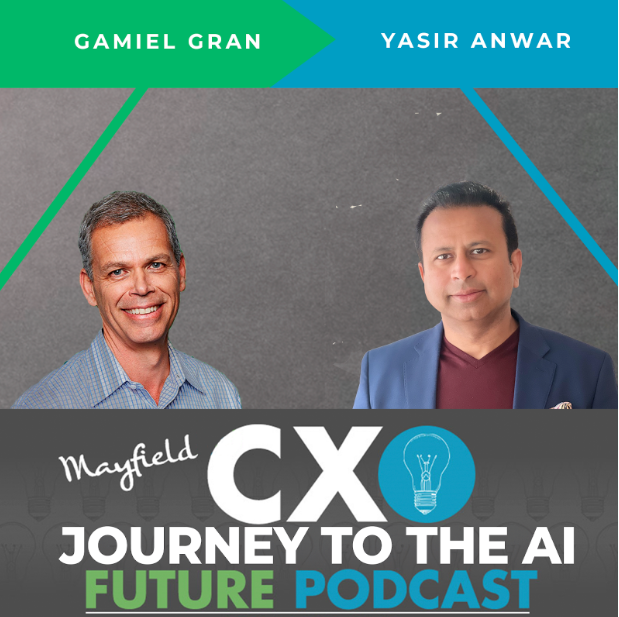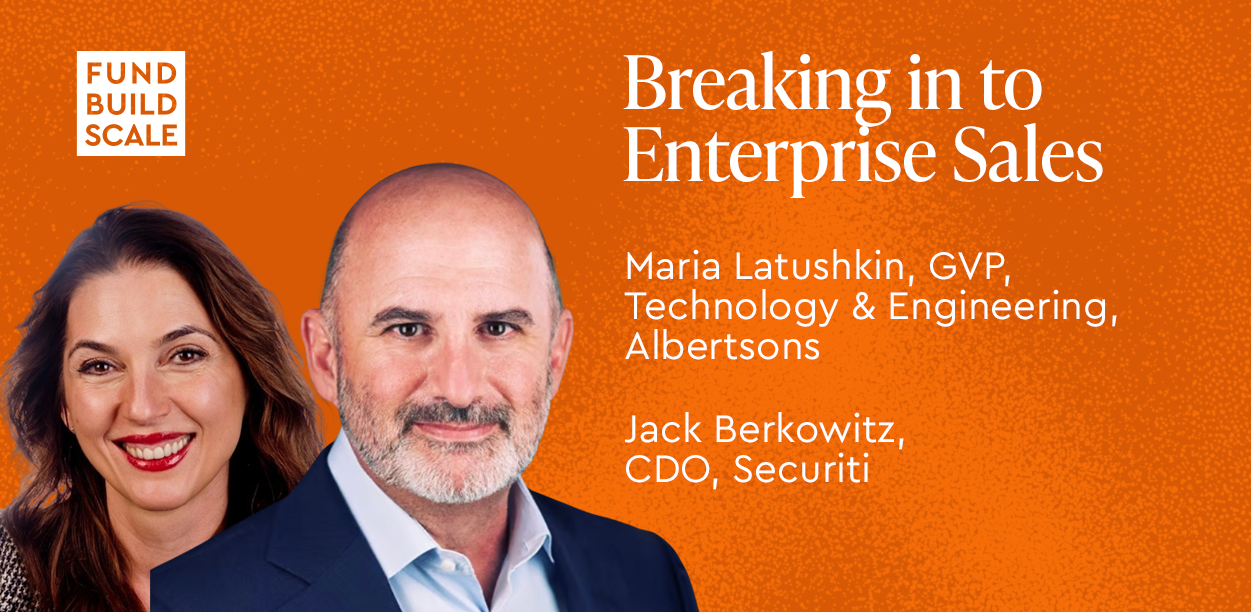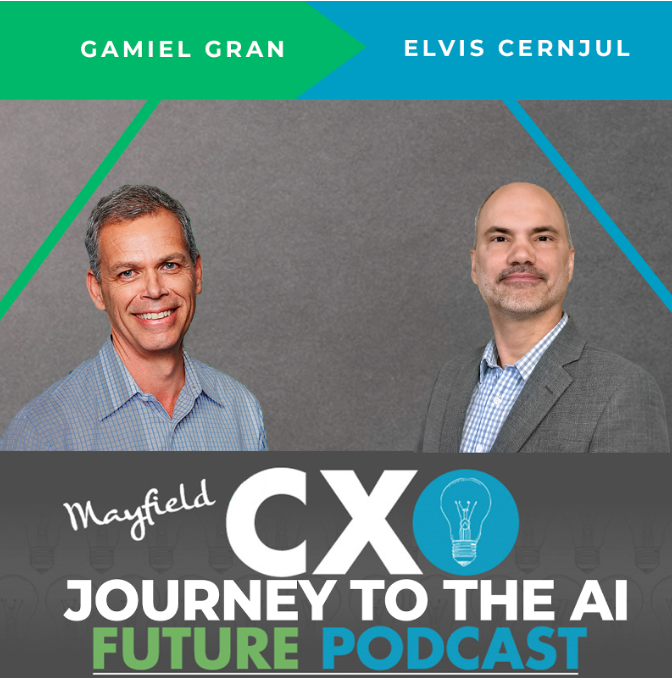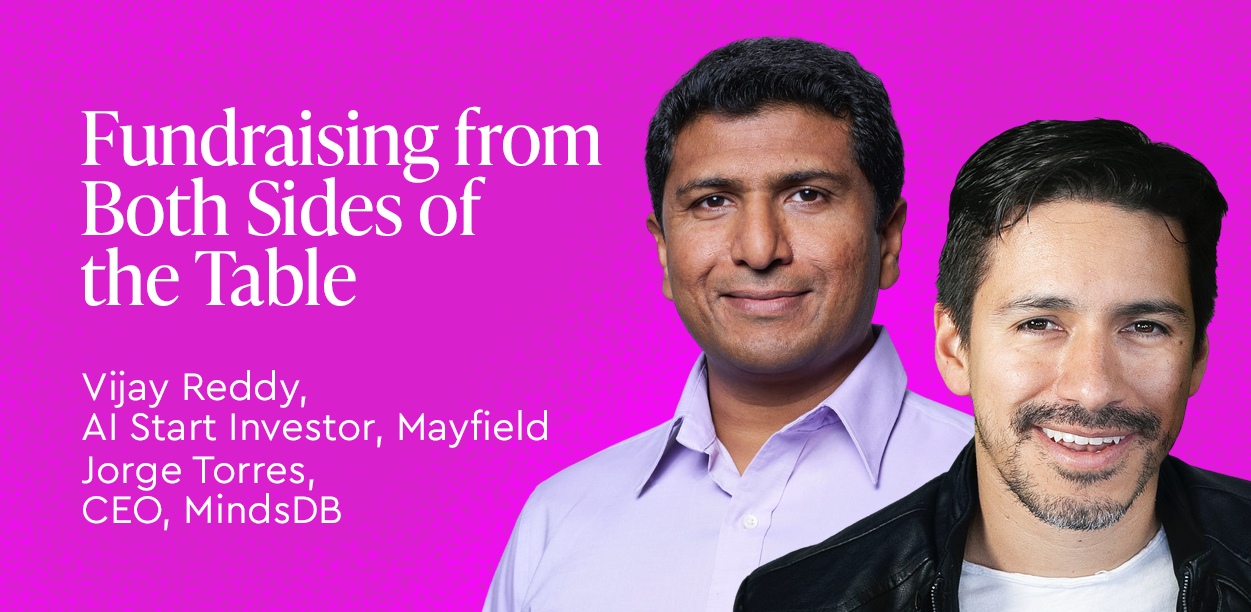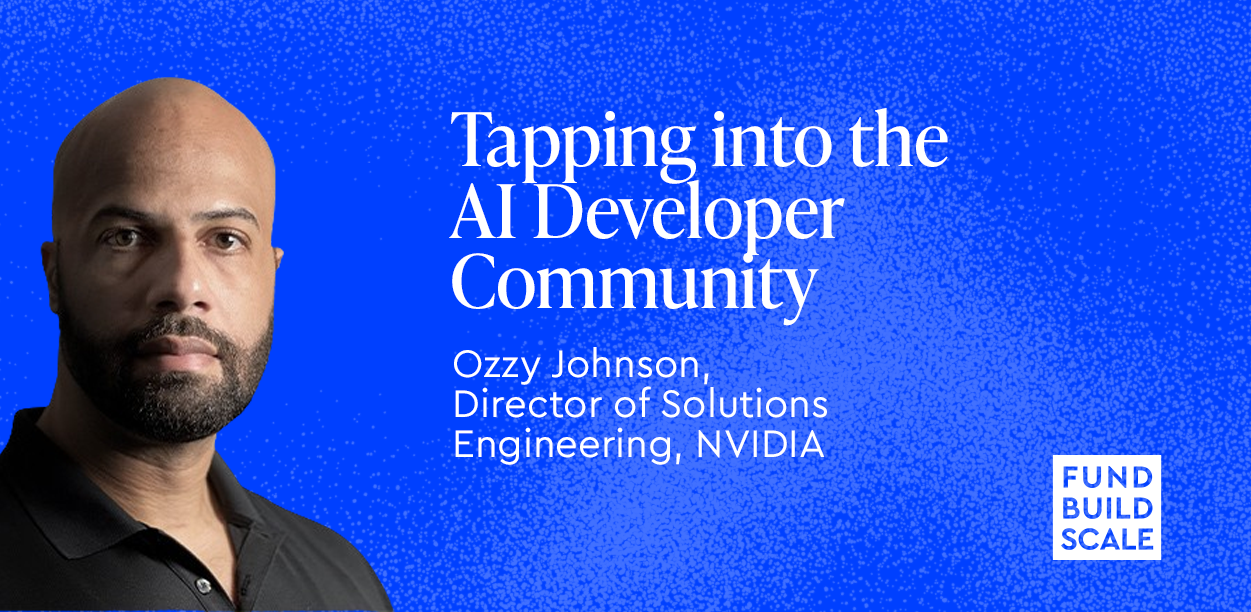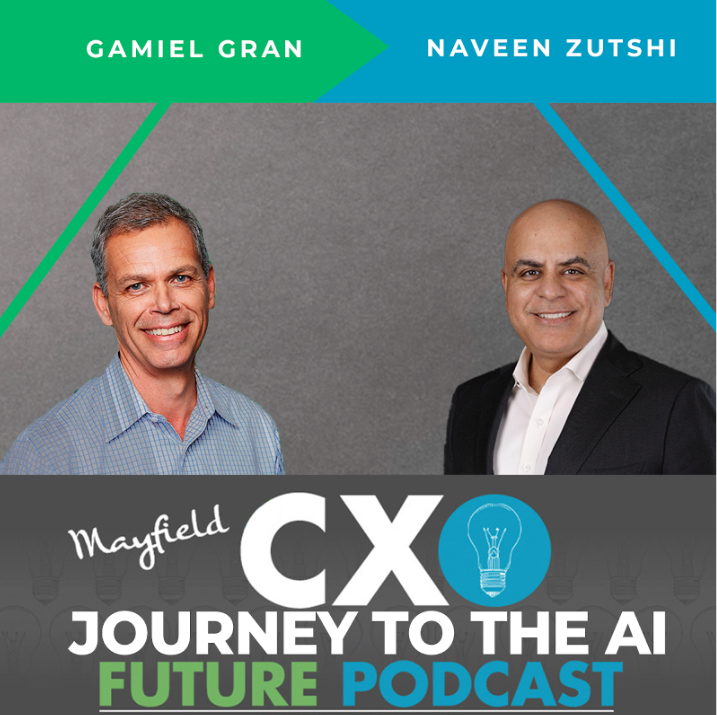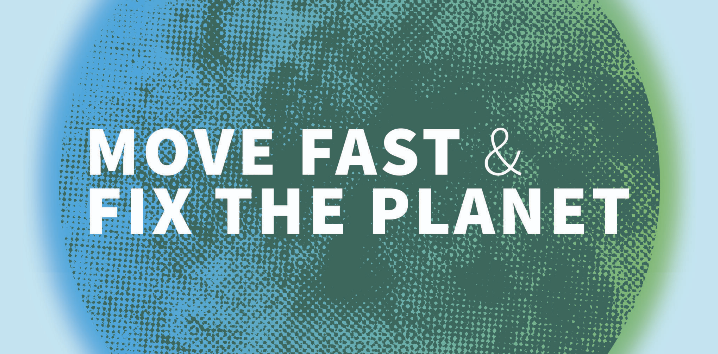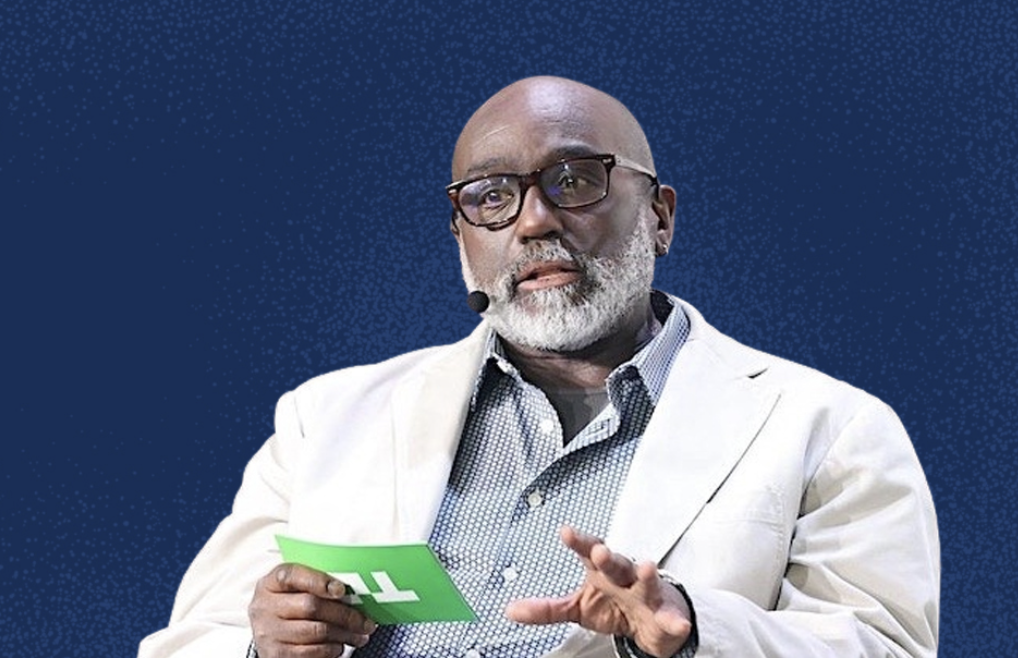Listen to the podcast here:
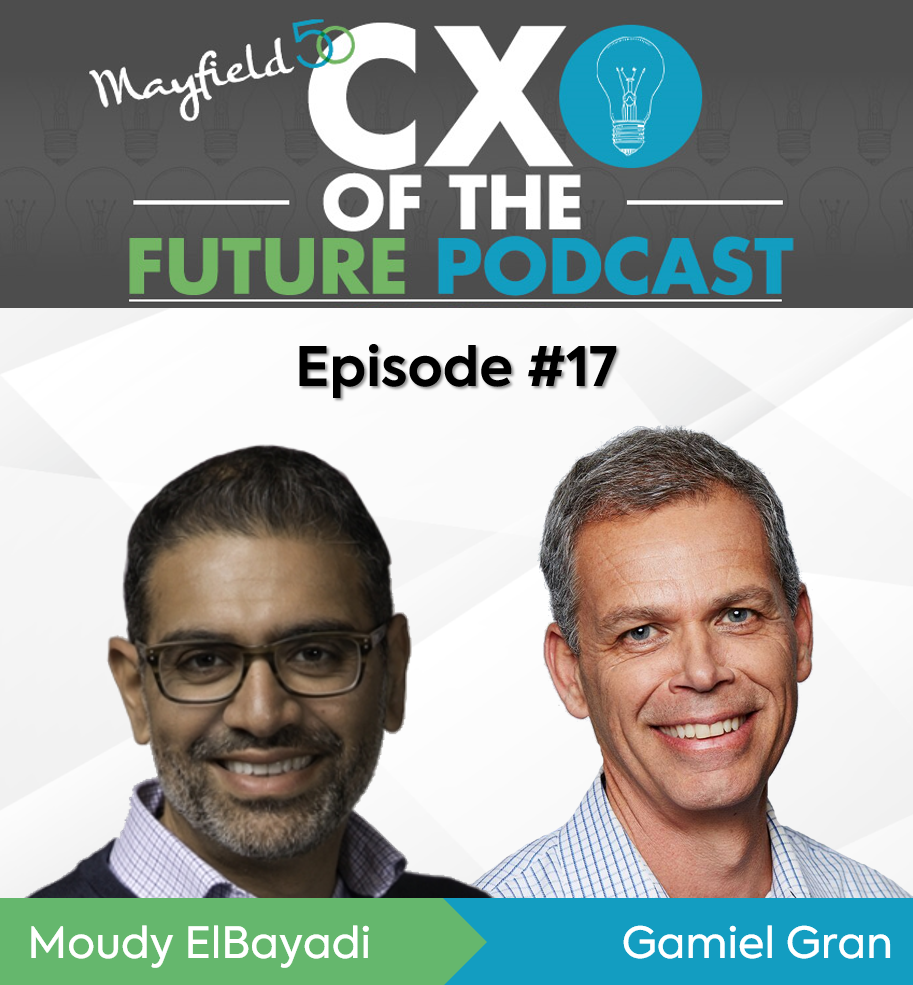
When we talk about leadership, it’s often about leading and influencing others. But Moudy Elbayadi, SVP, Chief Technology Officer at Shutterfly, also believes in the notion of leading oneself by finding stillness and focusing on what’s important. In this week’s CXO of the Future podcast, he talks about this philosophy and how it has impacted his life and work.
Moudy has more than 20 years of experience working with a number of high-growth companies including Brain Corp, a San Diego-based AI company creating transformative core technology for the robotics industry, and Wag! where he oversaw product development, technology operations, security, and devOps.
Moudy has also held leadership positions at ACTIVE Network, LifeLock, Intuit, IndyMac Bank and Bank of America. He earned a doctorate in leadership and change from Antioch University, a master’s degree in organizational leadership from Chapman University, and a master’s degree in business administration from the University of Redlands.
Background
Moudy was born in Egypt and moved to LA when he was ten years old. His life was grounded in that identity because one of his key learnings as an immigrant was to hang onto hunger and curiosity— that sense of wanting to push oneself and to continue to strive and to learn.
“I was interested in psychology, and when I went to college, I thought I wanted to be a psychologist. But during my first internship I dealt with folks in very difficult situations and realized I was not necessarily gifted in that space. ‘OK,’ I thought, ‘what the heck am I going to do now?’ As early as I can remember I had a passion for and access to computers. With these technical skills I figured that one of the ways I could make money was to build computers from components that I bought at swap meets. I learned that I could sell the computers I built it for a healthy margin and thought ‘Man, people get paid for this?’ 22 years later I still feel fortunate that I get paid for playing with technology.”
Moudy’s passion for psychology influenced his work – helping him develop a deep focus on customer experience at the various companies he has been a part of. “At LifeLock, and going back as far as Intuit, a lot of thought and energy went into how to delight customers.
Scott Cook, the founder of Intuit thought of customer experience as ‘customer driven innovation’ a simple formula for understanding how to delight customers.
“In enterprises, unfortunately, customer experience takes a backseat to larger business initiatives. I personally enjoy focusing on the consumer experience a lot more and delivering delight in what we do every day.”
Leadership
One leadership practice that Moudy has spent a lot of time thinking about is the notion of leading oneself.
“When we talk about leadership, it’s often about leading and influencing others. But
leading oneself has to do with finding stillness. There is so much going on and so much noise in the world. It’s critical to find stillness so that you can actually focus on what’s important.
“The other aspect of leading oneself has to do with being energized. Some of that has to do with quality of sleep, some of it has to do getting exercise. Leaders that make it a priority to take care of themselves are better able to serve others. One of the challenges that leaders struggle with is ego management. Leaders need to be quiet enough to listen. What we’re seeing on a broad scale in our country and around the world is people are not listening to each other. I believe leadership has to be about being able to engage in conversations where you’re listening—not just listening to respond but listening to understand.
“I’m afraid that we’re losing our ability to have good conversations. There’s a quote by Judith E. Glaser that really resonates with me:
“‘To get to the next level of greatness depends on the quality of the culture, which depends on the quality of the relationships, which depends on the quality of the conversations. Everything happens through conversations!’
“Leadership is ultimately about conversation. It’s important to engage in conversations at all different levels of your organization. I’m always astonished by what I learn every time I have these conversations.”
Making Space for Conversation and Stillness
“I’m very encouraged that we are able to talk more and more about mindfulness in organizations. And mindfulness does not need to have any kind of spiritual tone to it or any religious connotations. Mindfulness is about quieting the mind and listening. I think it is great that corporations are encouraging the practice of mindfulness and sharing applications like Headspace and Calm. Just taking a walk without focusing on a problem is beneficial as well. You want to be able to respond to the world and of all the things that are coming at you from a position of strength and a position of clarity.”
Moudy thinks that one of the things we’re missing during the pandemic is unstructured time. One could argue that we’re more productive: there’s less travel and meetings booked from sunrise to sunset, but we’re losing hallway conversations and grab-a-cup-of-coffee with a colleague conversations. People haven’t fully resolved how to deal with that, but what one thing that works well is ending meetings a little early to take the time to check in with each other.

Driving Innovation
Moudy wants to do a reset on the concept of innovation.
“There is mental model that says innovation means ‘I need to come up with the next amazing, great thing.’ I think that for every big innovation there are millions of small innovations that we should be pursuing. I believe that innovation is about understanding core pain points and the core solutions that deliver customer delight. By resetting this notion of innovation, everybody in the company can be innovative in their specific area.”
In terms of product and technology, Moudy focuses on identifying and removing friction points in his organization. “The public cloud has done a lot to remove friction. There was a time, not too long ago, that when someone had a great idea there was so much friction with servers, firewalls and access lists that the idea just died on the spot.”
Today, organizations have different levels of friction that need to be worked through. But how?
“Companies need to operate like the Navy. The Admiral provides structure and discipline, but you need to have a few pirates in the organization that challenge conventional norms of how things are done. I encourage some level of drawing outside of the lines, testing, and validation. I’m always amazed at what happens when someone comes to me and says ‘Look at this thing I worked on over the weekend, I was able to create this feature…’ When you have a team that’s engaged and wants to solve problems, great things can happen. In every big organization there are so many people that are just hungry. They will even work outside on their own time and if given the freedom, they will fix a bunch of problems without all of the established processes. I like those processes, by the way, but you want to harness that energy and enthusiasm.”
Moudy’s other principles for driving innovation include:
- Creating the right organizational structures so that innovation and ideas can actually flow. “I found that smaller, self-sufficient teams with the right self-services are able to move forward more efficiently.”
- Focus on mock-up presentations and demos. A show-don’t-tell approach engages our brains in a more actionable way.

Working with Startups
“I tell founders to seek out the folks inside of enterprises that will sponsor the idea or that have a passion for startups. You need to knock on the right doors, because it is extremely difficult to integrate a startup—big organizations have extremely sensitive and critical data that they’re trying to protect. This can be a challenge for startups who have been building and prototyping. Security for product teams is a must-have. In order to engage with larger enterprises, startups need to build security into their product from the ground up.
“I’m working on a book with Neil Daswani, a former colleague at LifeLock, that focuses on the biggest breaches that have happened in America. Our research found that when security is not built into the design, big problems occur. Security should never be a ‘bolt on.’
“Startups also need to have a value proposition that is significant enough to address other risks associated with adoption. It should be compelling enough that CTOs can’t ignore it.
“When I coach startups, I encourage them to build an acceleration pack, one that makes it easy for enterprises to get their technology integrated. The acceleration pack should be part of the product design and could include legal and security checklists, network requirements—all of the things the make it easier for the customer to look at the technology and validate it.”
On Writing a Book
I wanted to write a book to give back and support others. Over the course of my career, I’ve learned that security is a huge threat. Both malware and ransomware are out of control and
I still see that many boards don’t have the capabilities and the knowledge to ask the right questions about security. Boards are meant to provide the governance and oversight, but it’s really hard to have oversight of things you don’t understand. How do we help these boards oversee these companies and ensure they are diligently following better security practices? In the book we examine the root causes of security breaches and empower board executive management to take the steps needed to protect the enterprise. The book will be released in early 2021, it has a working title: “Big Breaches: Cybersecurity Lessons for Everyone.”
5 Takeaways for the CXO of the Future
- When we talk about leadership, it’s often about leading and influencing others. But leading oneself and finding stillness is important too. There is so much going on and so much noise in the world. It’s important to find stillness so you can actually focus on what’s important.
- Leadership has to be about listening and about being able to engage in conversations where you’re listening—not just listening to respond but listening to understand.
- Leaders should adopt a set of practices, such as mindfulness, exercise or another practice of choice, and do them every single day. Committing to these practices will serve them for the long term.
- Startups need to have a value proposition that is significant enough to address other risks associated with adoption. It should be so compelling that CTOs can’t ignore it.
- Leaders that make taking care of themselves a priority are better able to serve others.
Important Links:
About Moudy Elbayadi

With more than twenty years of experience, Dr. Elbayadi has worked with a number of high-growth companies and across a variety of industries, including mobile and SaaS consumer services, security and financial services. Having held C-Level positions for leading solution providers, Dr. Elbayadi has a uniquely 360-degree view of consumer and enterprise SaaS businesses. He has a consistent track record of defining technology and product strategies that accelerate growth.
As CTO of Shutterfly, Dr. Elbayadi oversees all technology functions including product development, cybersecurity, DevOps and machine learning/AI R&D functions. In this capacity he’s leading the technology platform transformation. Prior to Shutterfly, Dr. Elbayadi held the position of SVP, Product & Technology for Brain Corp, a San Diego-based AI company creating transformative core technology for the robotics industry. Dr. Elbayadi also held leadership positions at Wag!, LifeLock, Symantec, ACTIVE Network, Intuit, IndyMac Bank and Bank of America
As advisor, Dr. Elbayadi has been engaged by CEOs and senior executives of companies ranging from $10M to $2B in revenues. Representative engagements include public cloud strategy, platform integration and M&A strategy. Also advised numerous VC firms on technology and prospective investments.
Dr. Elbayadi earned a doctorate in leadership and change from Antioch University, a master’s degree in organizational leadership from Chapman University, and a master’s degree in business administration from the University of Redlands.


